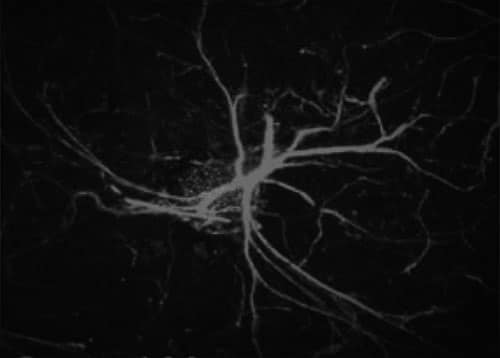
Tiny electrical junction boxes in our brains, known as glial cells, radically alter their structure and pattern of connectivity when exposed to chronic stress – with long-term implications for further cognitive and mood disturbances.
As a neuroscience researcher, HMRI Director Professor Michael Nilsson has seen first-hand the way the brain is impacted by chronic psychological stress.
Tiny electrical junction boxes in our brains, known as glial cells, radically alter their structure and pattern of connectivity when exposed to chronic stress – with long-term implications for further cognitive and mood disturbances.
Young people living in a vicious and endless cycle of poverty face stress and uncertainty far more than the rest of us.
There’s the financial stress wrought by a lack of career potential, which itself is embedded in societal stereotyping. There’s the emotional stress of living in close confines with the omnipresent spectre of violence and crime.
The good news is that the brain has the ability to recover from stress through what researchers call plasticity. Professor Nilsson’s team has been looking at new preventative and treatment methods using the technique of “enhanced environment”, involving feel-good factors such as music and art.
Environmental challenges induce the glial plasticity so the natural offset is to look at environmental interventions which can address that. It’s a simple, fun, affordable and healthier alternative to developing new drug therapies.
HMRI’s research program E2EEE (Enrich 2 Engage, Educate & Empower) will provide disadvantaged kids with the cultural tools to improve their lives now and maintain good health and wellbeing for the rest of their lives.
You can help simply by voting in the Eftpos Giveback, with up to $2million going to a worthy cause. Please make sure that you highlight “Disadvantaged kids, families and communities”.

HMRI would like to acknowledge the Traditional Custodians of the land on which we work and live, the Awabakal and Worimi peoples, and pay our respects to Elders past and present. We recognise and respect their cultural heritage and beliefs and their continued connection to their land.

Hunter Medical Research Institute
We’re taking healthy further.
Locked Bag 1000
New Lambton
NSW, Australia, 2305



This site is protected by reCAPTCHA and the Google Privacy Policy and Terms of Service apply.
Copyright © 2024 Hunter Medical Research Institute | ABN: 27 081 436 919
Site by Marlin Communications
